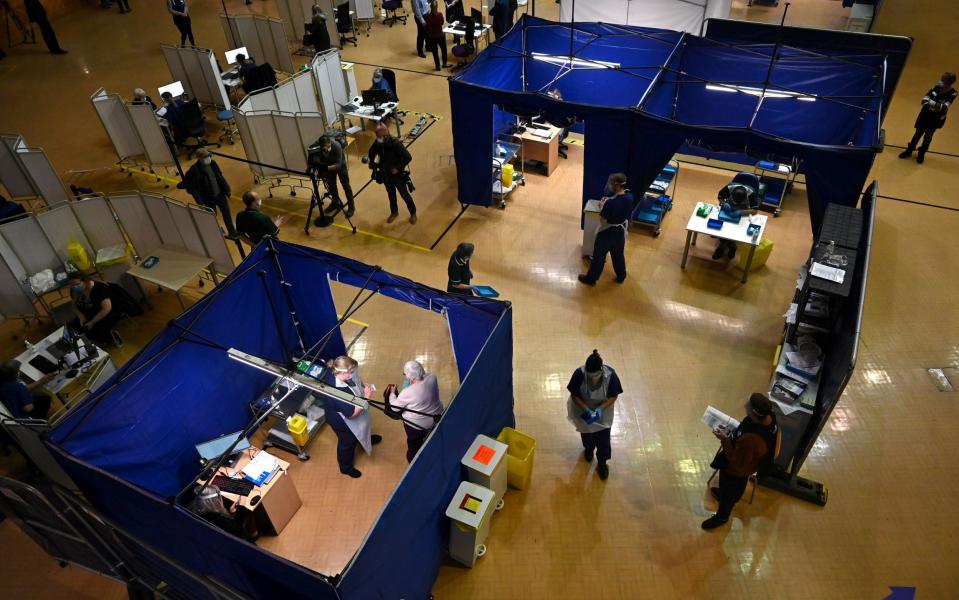People unable to work from home could be moved up vaccine priority list, minister suggests


Britons who cannot work from home should be considered for prioritisation in the queue for coronavirus jabs as the rollout is extended, the vaccines minister has said.
Nadhim Zahawi proposed that public-facing employees more likely to come into contact with the virus, including shop workers, should be allowed to receive a dose earlier than those who can work remotely once the second phase of the vaccine programme begins.
Phase one is targeted at nine priority groups which collectively include all adults over 50, the clinically extremely vulnerable and people with underlying health issues that put them at increased risk of serious disease and death.
Deaths from coronavirus are forecast to drop by 99 per cent once this phase is complete.
"When we enter phase two, we will work with the joint committee (on vaccination and immunisation) to look at the priority," Mr Zahawi told ITV.
"My instinct is that anyone who, through no fault of their own, has to come into contact with the virus in much greater volume and probability should be protected – teachers, policemen and women, shop workers, all those who need that additional protection.
"Now, some of them will be captured in the top nine categories anyway... but phase two – of course we'll be guided by the JCVI – but my instinct is that if you work in a job, a shop worker, policemen or women, any other profession which brings you into contact with the virus unfairly, then I think you should be prioritised."
Downing Street struck a more cautious note, stressing that it would be guided by the JCVI, which is independent, on which categories should be prioritised.
The Prime Minister's official spokesman said: "We've always said we want to ensure that those who are most at risk, most clinically vulnerable, receive the vaccine first and that is what we are doing. But it is for the JCVI to look at phase two and advise where the vaccine priority will be after phase one."

However, the Number 10 spokesman acknowledged remarks by Matt Hancock, the Health Secretary, who last week said there was a strong case for professionals who come into contact with a lot of other people to be prioritised as part of phase two.
Asked whether Boris Johnson agreed with the statements made by his ministers, the spokesman added: "It is for the JCVI to advise on who should be prioritised as part of phase two but we have set out that there are some professions that interact with a lot of people and with the public who [could] feature high in that priority list."
On Monday night, Mr Hancock told a Downing Street press conference that after the top nine prioritisation groups have been vaccinated it is "essentially about protecting people as well as possible, according to essentially a judgment about who we think should come next".
Phase two of the jabs rollout "is about protecting against transmission and making sure that we can get life back to normal, as much as possible", he said.

 Yahoo News
Yahoo News 